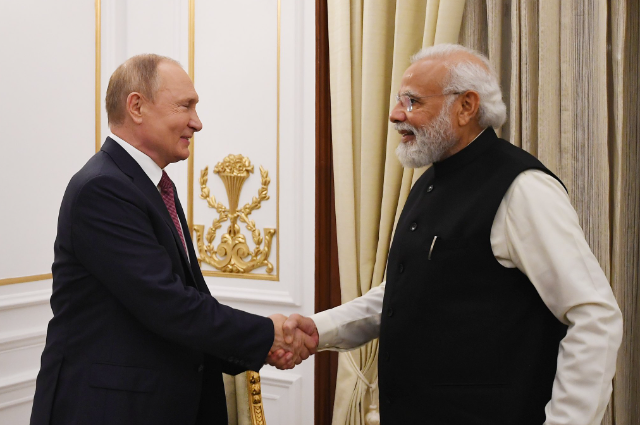
Russian President Vladimir Putin has once again signaled India’s importance in Moscow’s strategic outlook, this time by directly addressing the issue of trade imbalance between the two countries. With Russia exporting massive volumes of crude oil to India, fuelling an asymmetry in trade flows, Putin has ordered his government to identify corrective steps. Among the proposed measures is the expansion of Russian imports of Indian agricultural products and pharmaceutical goods.
This is not merely an economic adjustment but a political message. By choosing sectors like agriculture and medicines, Putin is signalling that Moscow values Indian strengths in essential, people-oriented industry areas where India has a proven global edge.
Looking Ahead and a December Visit to India
Speaking at the Valdai Discussion Club’s plenary session, Putin expressed keen anticipation of his upcoming visit to India in early December. The visit, which will coincide with the annual bilateral summit, will also be an opportunity to reaffirm his personal rapport with Prime Minister Narendra Modi. Putin described Modi as a “balanced and wise leader,” someone he trusts in their one-on-one interactions.
This emphasis on personal chemistry is not unusual for Putin. Over the years, he has often leaned on direct relationships to bypass bureaucratic hurdles in diplomacy. By publicly lauding Modi’s nationalist vision and his ability to make sovereign choices, the Russian leader is underscoring a geopolitical bond that extends beyond formal agreements.
Rebelliousness Against Western Pressure
When asked about the United States’ threat of sanctions on Russia’s key trading partners, Putin’s reply was sharp and telling. He argued that India, a civilizational state with its own proud history, would never succumb to Western coercion. He predicted that Prime Minister Modi, too, would resist any attempt by Washington to dictate terms that go against India’s national interests.
In his words, India would not “allow itself to be humiliated by anyone.” This direct phrasing reflects Moscow’s confidence in India’s pursuit of strategic autonomy, particularly in the face of punitive U.S. tariffs. The Trump administration’s decision to impose a cumulative 50 percent tariff on Indian goods as a penalty for oil purchases from Russia was cited by Putin as an example of Western high-handedness. Yet, he suggested that India’s oil trade with Russia not only offsets such losses but enhances its global stature as an independent decision-maker.
A Reality Check on Trade Potential
Despite the friendliness, Putin did not shy away from highlighting the gaps. He pointed out that trade turnover between India and Russia currently stands at around $63 billion, a figure that appears underwhelming when compared with Russia’s $50 billion trade with Belarus, a country with a population of just 10 million. For India, with its 1.5 billion citizens, this comparison starkly underscores the underutilised potential in bilateral economic ties.
Putin listed financing, logistics, and payment mechanisms as the key bottlenecks that prevent trade from reaching its true scale. These are not abstract concerns but real operational hurdles that often slow down India-Russia projects, from defence deals to energy cooperation.
India’s Leverage in a Multipolar World
From an Indian perspective, Putin’s remarks deserve attention not just for what they reveal about Russia’s intent, but also for the leverage they provide India. In a world tilting towards multipolarity, India finds itself courted by multiple powers Russia, the United States, the European Union, and even emerging players in Asia. Moscow’s readiness to recalibrate trade to suit India’s interests shows how central New Delhi has become in global realignments. Moreover, Putin’s confidence in Modi’s “independent” decision-making reflects an acknowledgement of India’s growing weight in international diplomacy. At a time when Washington often frames India as a counterweight to China, Moscow frames it as a sovereign partner with which it shares a civilizational depth of ties.
For India, the message is clear that Russia is willing to diversify its imports to ensure a healthier economic balance. The question is whether India, in turn, can overcome logistical hurdles and capitalise on this opening. If both countries manage to address bottlenecks in payments and supply chains, the potential is immense.
Putin’s December visit will likely test how much of this bombast translates into action. What remains beyond doubt, however, is that India-Russia ties are not transactional in nature; they are strategic, rooted in trust, and now recalibrating to suit the demands of a turbulent global order.
. . .
References:
